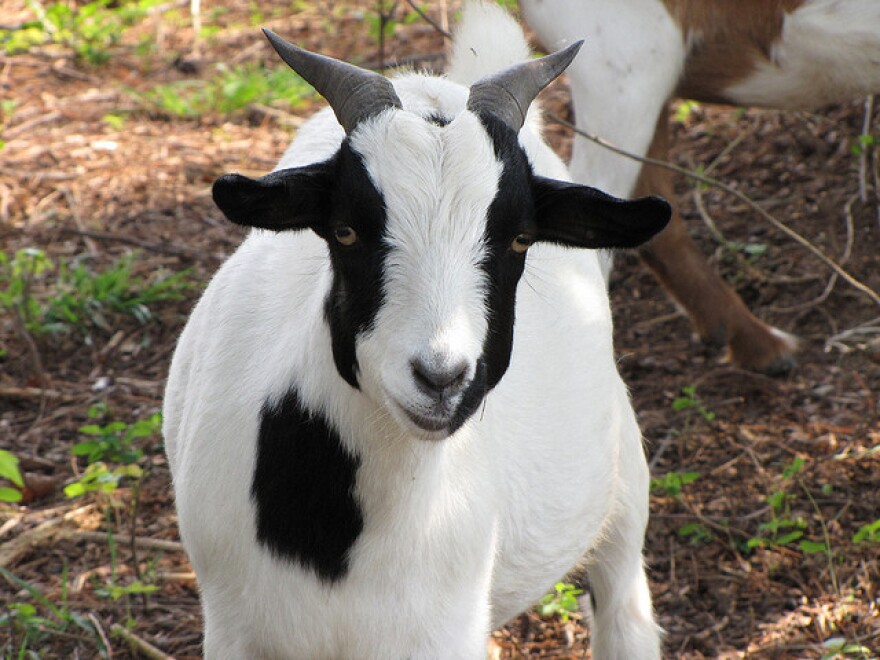Back in June,Idyll Farms Detroit and the Brightmoor community teamed up to clean-up the weeds and trash that had overrun the Brightmoor neighbors.
Their method of choice: goats.
At the time, Detroit Animal Control enforced a Detroit ordinance against farm animals within city limits, demanding Idyll Farms remove the goats immediately.
Practically speaking, did Detroit make the right call?
Recent evidence suggests that urban communities benefit from employing goats as natural landscapers.
John Metcalfe from The Atlantic explains:
[Goats] are extremely good at what they do—which is eating everything in sight. Their ironclad tongues and guts make quick work of tough or hazardous vegetation that humans struggle to control, such as blackberry tangles and poison ivy.
The usefulness of goats in managing invasive weed populations is supported by a study published in PeerJearlier this week.
From the study's abstract:
Experimental field tests demonstrate that rotational goat grazing (where goats have no choice but to graze Phragmites) can reduce Phragmites cover from 100 to 20% and that cows and horses also readily consume this plant. These results, combined with the fact that Europeans have suppressed Phragmites through seasonal livestock grazing for 6,000 years, suggest Phragmites management can shift to include more economical and effective top-down control strategies.
Using livestock to control the weeds not only cuts down on the costs and risks involved with other control methods (herbicides, and "mechanical" removal), the study's authors found it helps produce valuable products - such as meat, milk, leather, and wool.
For all these reasons, Brian Silliman, Duke University professor, calls goat landscape management a "win-win-win-win situation."
Already, cities across the country - from Chicago to DCto Seattle - are employing goats for this purpose. Perhaps someday Detroit will be among them.
- Ari Sandberg, Michigan Radio Newsroom






